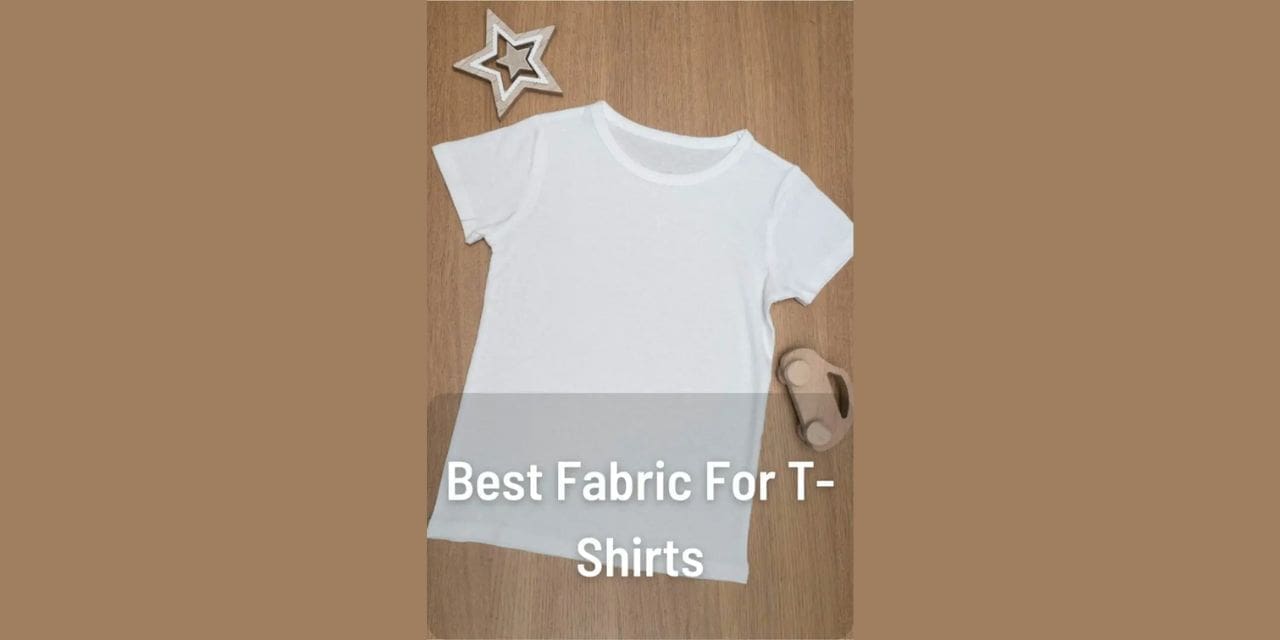Choosing the right fabric for your T-shirts is crucial, not only because it determines the comfort and fit of the final product but also because it significantly influences the durability and overall appearance of the garment. When selecting materials, consider fibers like Pima and Supima cotton, renowned for their exceptional softness and durability, making them top choices for high-quality T-shirt manufacturing.
Additionally, jersey knit is a favored option due to its smooth yet elastic texture, which adapts well to body movements. It’s important to remember that the single count is a common way to assess the quality of jersey knit; a higher count typically denotes a finer, softer fabric. This foundational choice in fabric selection sets the stage for creating T-shirts that are not only comfortable and stylish but also built to last.
Cotton
Cotton, a natural fiber harvested from the bolls surrounding cotton plant seeds, is widely favored in T-shirt manufacturing for its unmatched softness, breathability, and durability against washing and wear. It is extensively used in the production of high-quality blanks for printing, making it an ideal choice for those seeking the best quality t-shirts for printing. Cotton’s excellent ability to retain ink ensures that designs remain vibrant and long-lasting, making it a top choice for custom apparel that demands both comfort and style.
Polyester is another robust fabric choice for T-shirts, valued for its resistance to stretching and shrinking. Ideal for garments subjected to frequent laundering, polyester maintains its shape and color over time, making it a practical option for everyday wear. While it lacks the absorbency of cotton, polyester excels as activewear, keeping wearers cool and dry during physical activities due to its moisture-wicking properties.
Rayon, a versatile and lightweight fabric made from processed wood pulp, offers a unique combination of softness and fluidity. When blended with other materials, such as Lyocell and linen, rayon can enhance a T-shirt’s feel and durability. This blend combines the silky, drapable quality of rayon with the structural benefits of linen, creating a garment that is both comfortable and enduring.
Polyester
Polyester fabric is an excellent option if you need something long-wearing and wrinkle-resistant that dries quickly and being mildew-resistant. Plus, its lightness means drying times are short! However, polyester is less comfortable against skin than cotton, and lower-quality versions may even feel rough against skin.
If you want the benefits of polyester with a softer touch, consider opting for a poly-cotton blend or tri-blend with rayon for softness. These fabrics typically boast higher “single” counts than budget shirts because their thread has been twisted more times for an even smoother surface and resistance against cling. Adding Lycra or Spandex to the fabric mix provides stretchy options that are eco-friendly since this material is often made from recycled plastic.
Rayon
Cotton fabric is one of the most widely used textiles, offering softness, comfort, eco-friendliness, and support for multiple printing techniques. Breathable cotton allows moisture and sweat to evaporate quickly, so you feel refreshed after wearing it. It is also hypoallergenic and itch-free! Pima cotton and Supima cotton are considered superior options, while ring-spun may provide additional casual wear options.
Blended fabrics such as cotton-polyester and cotton spandex combine natural and synthetic fibers for benefits neither can deliver alone, such as being wrinkle-resistant and drying quickly, while cotton is breathable, elastic, and comfortable.
Selecting the ideal fabric for your t-shirts can help you craft high-quality custom merchandise that will impress customers and drive sales. Choose from cotton, polyester, modal, or rayon options until you find something suitable for your brand’s aesthetic and needs.
Lycra
No matter the texture you prefer—cotton softness, polyester durability, or rayon comfort—there are multiple fabric choices to consider when shopping for a shirt. Each has their own distinct benefits that should help make the decision-making process simpler.
Oxford cloth boasts a crisp feel and durable basket weave design, ideal for repeated wear. Poplin fabric can be found everywhere, from formal events to summer clothing and sportswear. Its smooth surface feels good against your skin while not creasing easily like other types.
Linen is an eco-friendly natural fabric with breathable properties and a lightweight texture, perfect for summer heatwaves. Each wash softens its fabric texture gradually without needing fabric softeners; however, it may shrink over time and wear. Polyester blends provide more versatile solutions as they offer healthy balances between breathability, durability, price, comfort, and eco-friendliness, especially tri blend mixes such as 50/50 blends between cotton and polyester that offer healthy balances between breathability, durability, price, comfort, and eco-friendliness.
Tailored to Perfection: Wrapping Up Your Fabric Choices
So, selecting the right fabric for your T-shirts is not just a matter of style but a strategic choice that impacts comfort, durability, and functionality. Whether you choose the classic appeal of cotton, the resilience of polyester, or the luxurious feel of rayon, each fabric offers unique benefits to meet different needs.
By understanding these materials’ properties, you can make informed decisions that enhance your wardrobe or product line. Remember, the best fabric is the one that aligns with your aesthetic, performance requirements, and sustainability values, ensuring that your T-shirts are as impressive in quality as they are in appearance.

